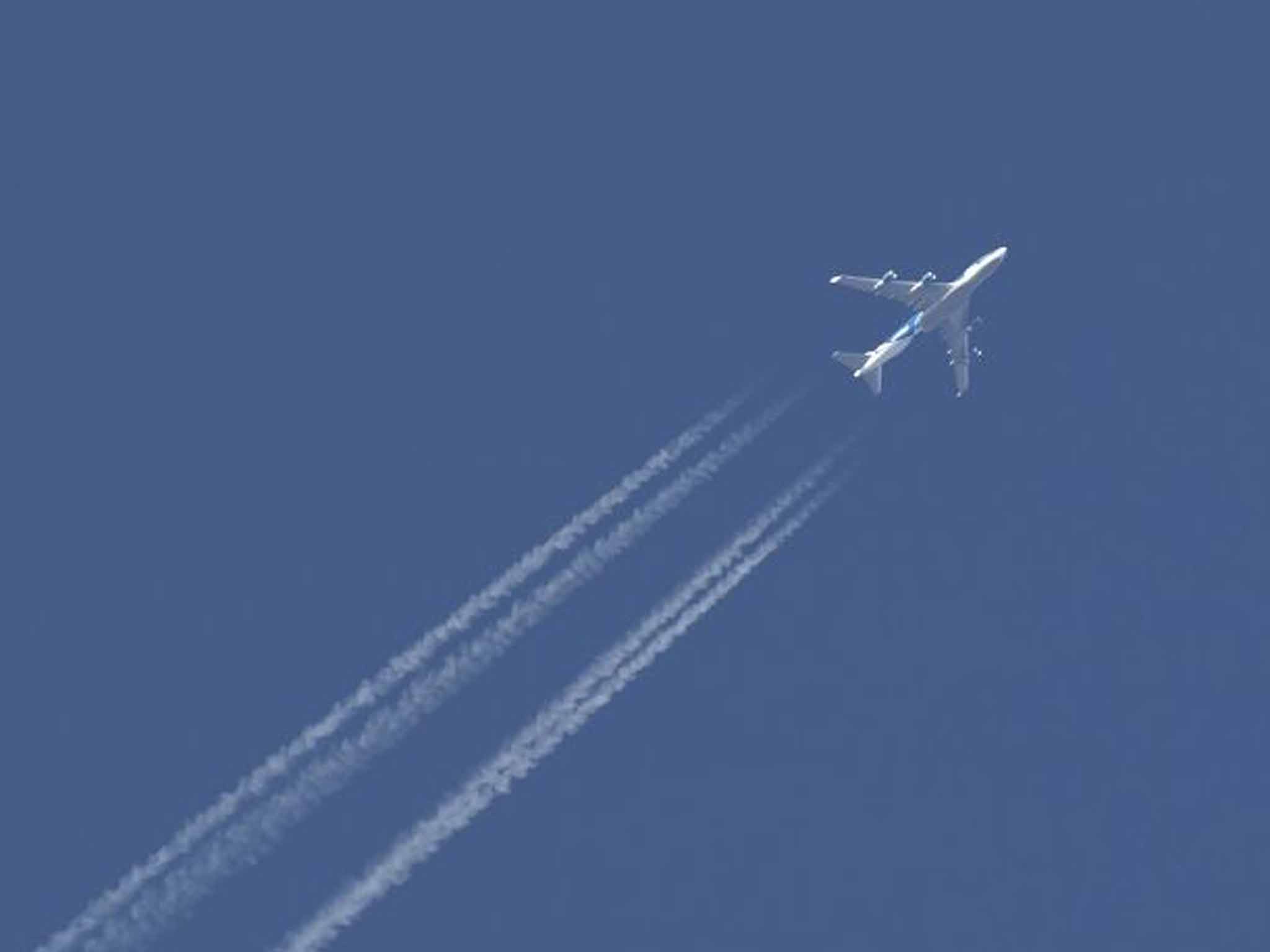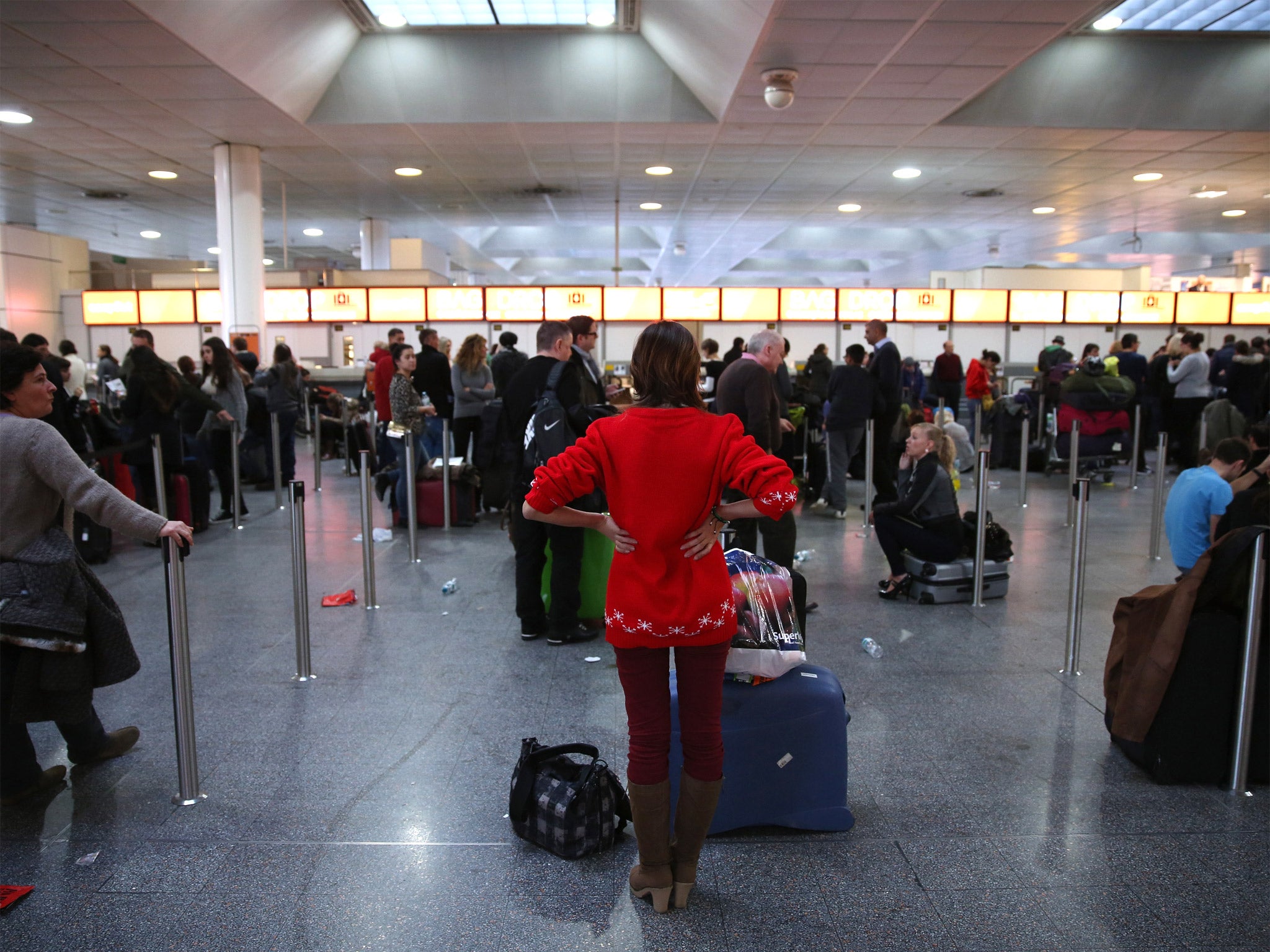Passenger compensation: Your rights when a flight goes wrong
The rules for cancellations, delays and overbooking are mightily tangled. Simon Calder unravels them

Your support helps us to tell the story
From reproductive rights to climate change to Big Tech, The Independent is on the ground when the story is developing. Whether it's investigating the financials of Elon Musk's pro-Trump PAC or producing our latest documentary, 'The A Word', which shines a light on the American women fighting for reproductive rights, we know how important it is to parse out the facts from the messaging.
At such a critical moment in US history, we need reporters on the ground. Your donation allows us to keep sending journalists to speak to both sides of the story.
The Independent is trusted by Americans across the entire political spectrum. And unlike many other quality news outlets, we choose not to lock Americans out of our reporting and analysis with paywalls. We believe quality journalism should be available to everyone, paid for by those who can afford it.
Your support makes all the difference.Your flight is delayed, cancelled or overbooked. What, if anything, does the airline owe you? This guide aims to help you understand when you are due compensation, and when you just have to put a dismal aviation episode down to experience.
Q. Just remind me what the law says?
The rules on passengers' rights known as EC261 apply to all flights from EU airports, as well as flights operated by EU airlines from airports outside Europe. The intention is to oblige airlines to do right by their passengers. They specify the care to which you are entitled when your plane is delayed or cancelled – or you are denied boarding even though you have a ticket and show up on time. But the rules are murky, and when airlines reinterpret them in different ways, they become positively labyrinthine.
The rules on care in a delay are clear. Regardless of the cause, the airline must provide meals and, if necessary, accommodation until the flight departs. The trigger point depends on the length of the journey. For short flights (up to 1,500km, for example Newcastle to Nice), it's two hours; mid-haul journeys (1,500 to 3,500km, e.g. Birmingham-Istanbul) three hours; and longer trips, four hours.
Q. What about cancellations and delays?
If a flight is cancelled at short notice (within a week or a fortnight, with slightly different rules on each), the airline must offer you the choice of a refund or alternative flight. They are also required to pay compensation if the cancellation was within their control. The original rules did not specify cash compensation for delays, but since they took effect in 2005 a succession of European Court of Justice judgments have concluded that if you are three hours or more late arriving, it amounts to a cancellation. So if it's the airline's fault, you can claim compensation.
Q. And overbooking?
Some airlines overbook, i.e. sell more seats than there are available, knowing there are often a number of no-shows. Sometimes they guess wrong. It should be a simple matter to solve the problem, by bribing passengers whose plans are flexible to travel later. But if the airline is unable or unwilling to find enough volunteers, they deny boarding to some passengers, who become eligible for compensation.

Q. How much compensation am I due?
The airline owes you between €250 and €600 in cash compensation, unless it can demonstrate "extraordinary circumstances" caused the problem. A short hop qualifies for €250, a mid-haul earns €400, and a longer flight €600 (only €300 if you arrive three to four hours late).
You must claim within the time specified under the Statute of Limitations – in England and Wales, six years, in Scotland five.
The payment must be made by cheque or bank transfer, except if the airline obtains the prior signed agreement of the passenger to pay with vouchers for future travel. For example, Monarch offers a 20 per cent uplift if you accept vouchers that are valid for a year; the €250 cash compensation becomes €300-worth of flights.
Q. Define 'extraordinary circumstances'
The rules provide only a partial answer: "political instability, meteorological conditions incompatible with the operation of the flight concerned, security risks, unexpected flight safety shortcomings and strikes".
Court cases have gradually refined the concept of extraordinary circumstances. Most recently, the Appeal Court in London ruled that technical issues did not count. A passenger named Ronald Huzar claimed from Jet2 after a 27-hour "tech delay" on a flight from Malaga to Manchester in October 2011. Initially, his claim was turned down by a district judge. But after a succession of hearings, the Appeal Court judge, Lord Justice Elias, ruled that mechanical failure was "inherent in the normal exercise of the activity of the air carrier" and not an extraordinary circumstance.
Q. What happened next?
Although Jet2 lost the case, it then lodged an application for permission to appeal the Court of Appeal's judgment – an appeal to appeal about an appeal, if you like. But three Supreme Court Justices threw out the application. Jet2 has declined to comment to The Independent, but will now be bound by the Huzar judgement - as will other airlines, which had “stayed” cases until the Supreme Court ruling.

Q. Thomson Airways has a related case?
The airline, part of Europe's biggest holiday company, has been rejecting claims dating back more than two years, rather than the Statute of Limitations stipulation. Thomson told The Independent: “We believe that it is reasonable to expect that those who perceive they have suffered a real loss as a result of an unfortunate delay should be able to make their claim within two years.”
But in a case known as Dawson v Thomson Airways, the Appeal Court ruled that the airline was wrong. The judge refused leave to appeal. Like Jet2, Thomson applied for permission to appeal the Court of Appeal's judgment, but the application was also rejected. Thomson says: “We are surprised and disappointed to note the decision of the Supreme Court as we believe our position is sound in law. We will now review this position based on the court's decision.”
Q. My airline is based abroad and won't respond to my claim. What can I do?
"If passengers are unhappy with the response from their airline," says the CAA, "they can refer to the relevant aviation body in the country their flight was due to depart." A list is here: bit.ly/flightcash. Or put your problem in the hands of a no-win, no-fee lawyer such as Bott & Co, which has made a speciality out of EC261 claims. It will tackle the airline for you in return for 27 per cent of the payout, plus a flat fee of €25.
Q. I heard that new rules are on the way?
The original EC261 rules were poorly drafted, and subsequent court judgments have made them even more of a muddle. Many in aviation regard the levels of compensation as disproportionate, with the payout for a three-hour delay often higher than the cost of the ticket. They argue that the effect is to push up fares for everyone. Various amendments have been suggested, though none has been approved yet.
Join our commenting forum
Join thought-provoking conversations, follow other Independent readers and see their replies
Comments